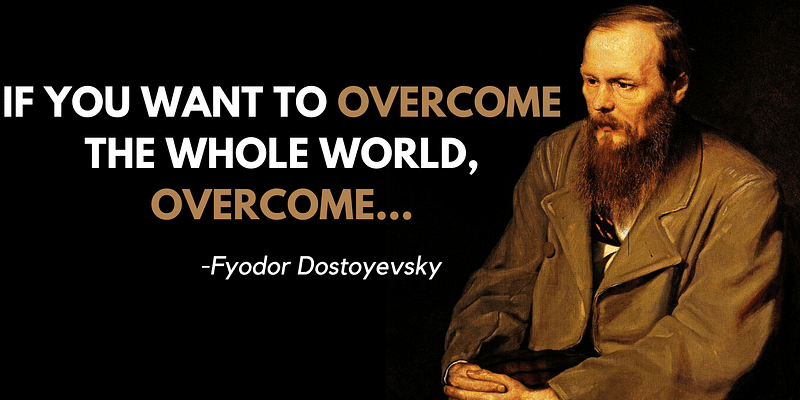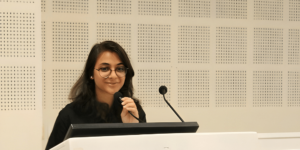
Fyodor Dostoyevsky, a literary giant, profoundly impacted the world with his deep psychological insights and exploration of the human condition. One of his most compelling quotes, “If you want to overcome the whole world, overcome yourself,” from his novel “Demons,” encapsulates a timeless wisdom that resonates through the ages.
This quote, at its core, speaks to the universal struggle of self-mastery. Dostoyevsky believed that the greatest battles are not against external forces but within the human heart and mind. In “Demons,” he explores the complexities of the human psyche, delving into themes of morality, free will, and the search for meaning. The quote serves as a clarion call to individuals to engage in introspection and self-conquest as a pathway to influencing broader change.
In contemporary times, this message holds particular significance. In a world teeming with challenges and conflicts, Dostoyevsky’s words suggest that the solutions to societal problems begin with the individual. Overcoming oneself implies a journey of recognising and combating one’s flaws, fears, and false beliefs. It’s about cultivating virtues like humility, empathy, and resilience.
The concept of self-overcoming aligns with various philosophical and spiritual traditions. For instance, in Stoicism, there’s an emphasis on controlling one’s internal responses rather than external circumstances. Similarly, in Eastern philosophies like Buddhism, there’s a focus on conquering inner desires and illusions to achieve enlightenment. Dostoyevsky’s quote encapsulates this universal wisdom, making it a timeless piece of advice.
Moreover, this idea has practical implications in modern self-help and personal development arenas. The journey of self-overcoming is often linked to personal growth, mental health, and fulfillment. In this context, Dostoyevsky’s words inspire individuals to embark on a journey of self-awareness, where recognising and addressing personal limitations becomes a stepping stone to achieving broader goals.
In a broader sociopolitical context, Dostoyevsky’s quote can be interpreted as a call for individual responsibility in the face of collective challenges. It suggests that societal change begins with personal transformation. The idea that personal growth and societal progress are interconnected is increasingly relevant in today’s globalised and interconnected world.
Fyodor Dostoyevsky’s quote from “Demons” offers a profound insight into the human experience. It highlights the importance of self-conquest in achieving broader goals, whether personal, societal, or spiritual. This timeless wisdom continues to inspire and challenge individuals to look inward as the first step in making a positive impact on the world around them.










